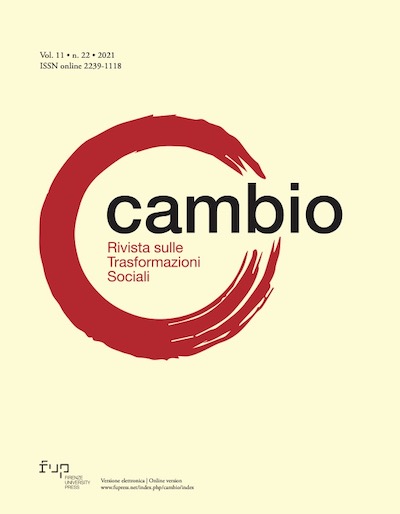Legami logorati. Un’indagine sulle dinamiche implicite ed esplicite dell’azione individuale e collettiva
Published 2022-08-03
Keywords
- social relationship,
- social roles,
- social fragmentations,
- leadership and responsability,
- Listening post
How to Cite
Abstract
This article discusses and analyses the processes that are producing a progressive strain on social ties, the impoverishment of solidarity relationships and the breakdown of the community spirit. The transformations that the world is experiencing have a significant impact on the public policies and social structure and are producing increased processes of social exclusion. Social exclusion is here referred to the structure of social relationship and social ties that reveals the mechanism causing marginalization and the processes associate with it. In post-modernity, as a result of processes of globalization processes and social and economic crisis, the social ties have become more fragile, and they are affecting the stability of society. Solidarity, common values, and a sense of community belonging keep society united by legitimising social institutions to carry out their function and providing citizens with ways of learning (and exercising) rights and duties.
The strain on the social ties, which in turn produces new forms of personal and collective instability, also highlights a progressive disappearance of public and social spaces, it seems as if social fora, communication and inclusive communities are going through a radical crisis. The article presents the first results of a social inquiry carried out in four Italian cities through a psycho-social approach named Listening Post. This research’s aim is to explore and understand (i) the underlying dynamics of the strained social ties are under, (ii) the impact of these dynamics on individual and collective action, (iii) the experiences of “counter- movement” as a process of bottom-up mobilization for social creativity and innovation.


